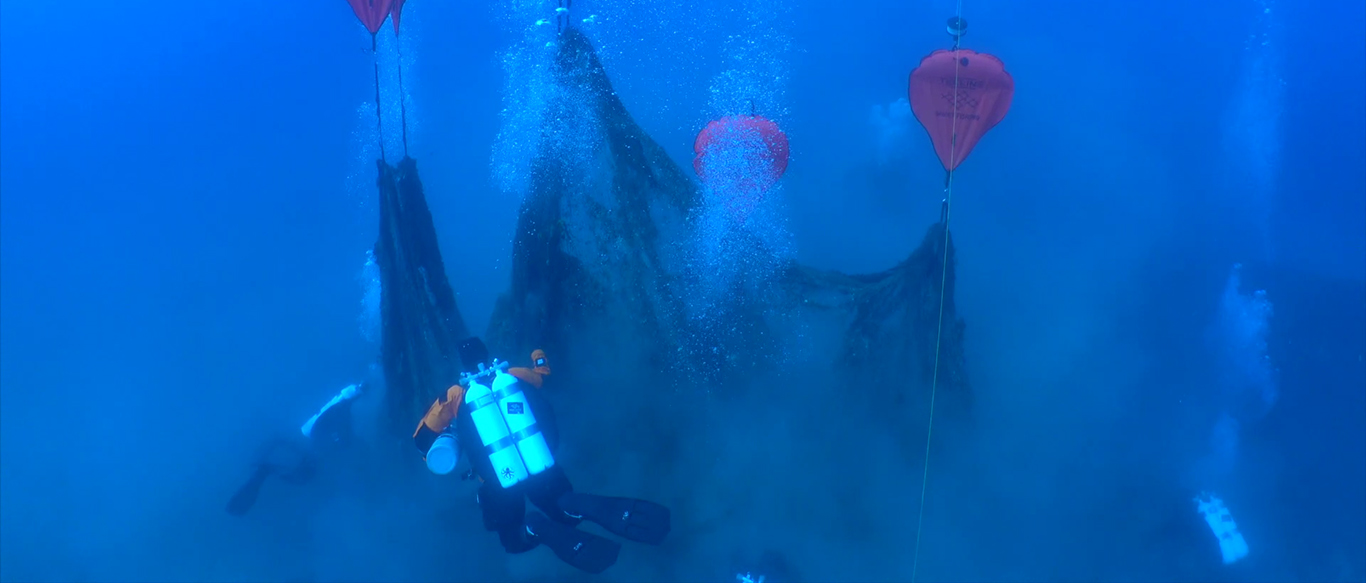Divers lift fishing net weighing 450 KG from reef in Tossa de Mar
Healthy Seas, together with Ghost Diving Spain, organised an event from October 1-3 in Tossa de Mar. The volunteer diving team has been operating since 2014 and recently started a cooperation with Healthy Seas, recording ten sea cleanup projects together over the past few months.
On October 1st, a conference at Tossa Del Mar City Council kicked-off the event followed by an educational programme that involved 120 students from the local school ‘Escola Publica Ignasi Mele i Farre’ in collaboration with Xatrac, a local environmental association.
The children participated in a beach cleanup, interactive presentations and games, to raise awareness about the ghost fishing phenomenon that is responsible for the suffering and death of millions of marine animals. They are called “ghost nets” because they appear almost invisible underwater, continuing to catch and kill without human involvement. It is estimated that 640,000 tons of fishing gear are lost or abandoned annually in the world’s seas and oceans.
In the following days, eight volunteer divers carried out underwater cleanups at “Muladera Rock” near Tossa de Mar. The team discovered and removed a fishing net that was covering the reef like a thick blanket, preventing marine life from accessing food and shelter in its holes and crevices.
Coinciding with scientific studies that indicate that the sea surrounding Barcelona is one of the three areas in Spain most polluted with plastics from fishing activity, Raul Alvarez, coordinator of Ghost Diving Spain says “For years, divers have observed nets and other fishing equipment polluting this popular diving spot. We are excited to be able to help clean up this area to allow biodiversity to thrive again.”
Once on land, it was time to clean the large fishing net that covered an area of 100 m2 and weighed 450 kgs. Divers removed thirty kilograms of lead which they will upcycle into weights for their diving belts.
“We are proud to have expanded our activities to Spain and be able to support local efforts in order to heal and protect the environmentally burdened coasts and seas of this beautiful country” says Veronika Mikos, Healthy Seas Director.
The event was also made possible thanks to Hyundai Motor Europe that announced its partnership with Healthy Seas back in April. They are providing funding for the implementation of Healthy Seas cleanup and education activities. Healthy Seas is a best practice example for circular economy and will ensure that the recovered nets will become a new resource. The nylon parts will be regenerated by Aquafil, together with other nylon waste, into ECONYL yarn, the basis for new sustainable products such as swimwear, activewear, socks and carpets

